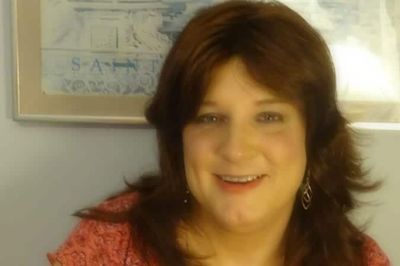I was sitting at Ruby Tuesday’s, enthralled by the twinkle in the blue/green eyes of the girl sitting across from me. I asked her about the electrolysis treatment she had started the previous day: “Does it hurt?”
April smiles. “Pain is different for everyone,” she says. “I didn’t find it especially painful, but then I was distracted for most of it. The woman doing it talked my ear off.”
Electrolysis is just one part of the transition process that a transwoman endures. Counseling by a therapist, Hormone Replacement Therapy (HRT), a trachea shave, a brow lift, and other procedures prior to Sexual Reassignment Surgery (SRS) are some of the reasons the cost of transitioning often exceeds $20,000. And those are just the medical aspects.
There are also the document changes, legally changing one’s name, and changing the name on a driver’s license—and this is only part of the problem in Tennessee, where the gender marker won’t be changed without jumping through a lot more hoops. Gay or lesbian, you ‘come out,’ but coming out as transgender is just the first step.
If you’ve read the many online biographies of transpeople, you realize that April’s story is not uncommon, but that doesn’t diminish the impact of what she has been through. Like pain, a lot of people might experience the event causing it, but not everyone responds to it the same way.
Born in Pennsylvania into a liberal household (her father was a professor of political science), April’s family moved to Berea, Kentucky when she was two, then to Wisconsin when she was five and to Louisville when she was eleven.
Gender questioning came very early and, by the time she was eleven, dressing in her mother’s or sister’s clothes in private was a regular practice. She was ‘caught’ once or twice, but like a lot of transpeople of her generation, she was adept at making up stories to explain it away.
“Actually, if my parents had pursued it they might have gotten me some help,” she says, “but they never quite caught on. At the most, they wondered if I might be gay.”
April tried hard to wipe away any suspicions about her sexuality. She was 19 when she married and had her first child. A few years later, after divorcing, she had two more children. “And I was a total homophobe,” she explains. “When my daughter came out as lesbian I responded in the worst possible way. That’s something I am not at all proud of.”
After splitting up with the mother of her second and third child, April began to face her fears. “If we’re afraid of something we come up with all kinds of reasons not to deal with it. And that’s so true of transpeople. So many, especially of our generation, have been afraid of simple things like going shopping, going out in public, contacting others like us. Most of that fear isn’t real, though—it’s in our heads. And once we get outside of it, we find it wasn’t worth the trouble we went through to avoid it.”
Thus began some twenty years of April’s exploration, of living ‘single’ and letting her true identity find itself. “I didn’t hold back,” she says, laughing. “I went crazy.” She built a wardrobe, learned to do make-up, tested her sexuality, as well as her gender. And then she arrived at the conclusion she had known was there all along. Ten months ago she began her transition.
“Do you plan to leave ‘him’ behind?” I asked, knowing that a lot of people who transition essentially bury their former identity and start a new life in their new gender.
She shakes her head. “I have too many friends, too many good things.” She smiles and sighs. Clearly, she is confident with her decision thus far.
She changes the subject. “One thing I’ve noticed,” she says, “is the way men and women who know me react to me... and I’m talking about straight men and straight women. The women generally accept me, they’ll ask questions and give me advice, but men… they don’t want to talk about it or get close. I think it’s that my ambiguous sexuality threatens them. And I mean it’s ambiguous to them. I know who I am, but they are not sure who they are.”
I agree. She does know who she is.
